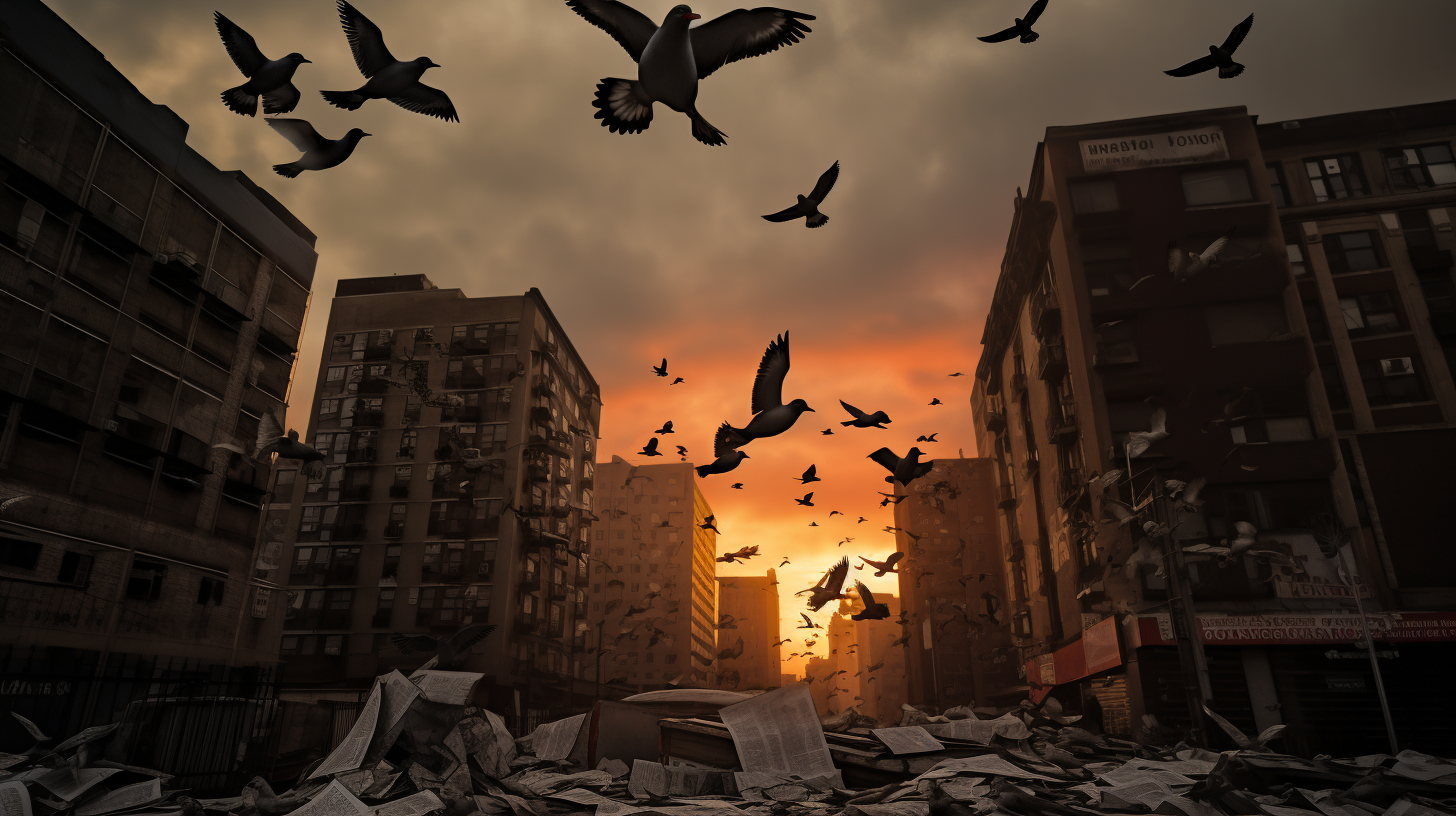In the wake of a world where forests stand no more, Where Will the Birds Fly Next ponders the destiny of our planet’s feathered troubadours. As the chainsaws ceased their roar and the last tree succumbed to gravity’s call, the sky above became a canvas of despair for the birds—our nature’s erstwhile symphony.
The silence is deafening; yet, in the stillness, an echoing question arises: without the trees, what becomes of the birds? This odyssey ventures into the uncharted territories of avian adaptation, migration, and the looming spectre of extinction. In an era marked by environmental apathy, we witness the plight of bird species that have spiraled into an existential nomadism, seeking refuge in a world that no longer offers the embrace of lush canopies or the bounty of seeds and insects.
Historically, migratory patterns have been timeless dances choreographed by nature. Yet now, disruption becomes the rhythm we observe. Climate anomalies bend the routes of migration like iron under a blacksmith’s hammer—wildfires, superstorms, and erratic weather patterns forge new paths of survival. Scientists and bird enthusiasts alike chronicle these shifts with a heavy heart, their data a somber ledger of change.
It’s not just about relocation; it’s an evolutionary alarm. Birds in their ecological wisdom are seeking alternatives in urban sprawls and artificial structures. The findings are disconcerting—their songs grow quieter amidst the cacophony of human existence, their nests precarious upon the concrete cliffs we offer as a pitiful substitute for their vanished homes.
Yet, within the chapters of this tale of survival, there exists a glimmer of hope. As the article ‘When the Last Tree Falls, Silence Becomes the Earth’s Cry’ reminded us, human action can be a catalyst for change. Community gardens, urban forestry, and conservation projects are rising to the occasion, offering a semblance of sanctuary for our winged refugees.
As we delve into the survival strategies of these resilient creatures—be it the urban relocation of the peregrine falcon or the altered migrational maps of the monarch butterfly—we must acknowledge our own role in this unfolding drama. The narrative is complex, intertwining threads of resilience, loss, and a stark reminder of our shared responsibility.
So we pose the question: Where Will the Birds Fly Next? And with it, a call to arms. An invitation to not just ponder but to act, lest the silence of a bird-less sky becomes our lasting legacy.
In closing, we stand at an environmental crossroads. Our own actions will determine the fate of the avians and, in turn, the ecological balance. May this article serve not as an epitaph for the birds, but as a prelude to a movement that redefines humanity’s relationship with nature. Because the question ‘where will the birds fly next’ is in truth a reflection of where we, as a species, will journey next in our relationship with the only home we’ve ever known—Earth.
